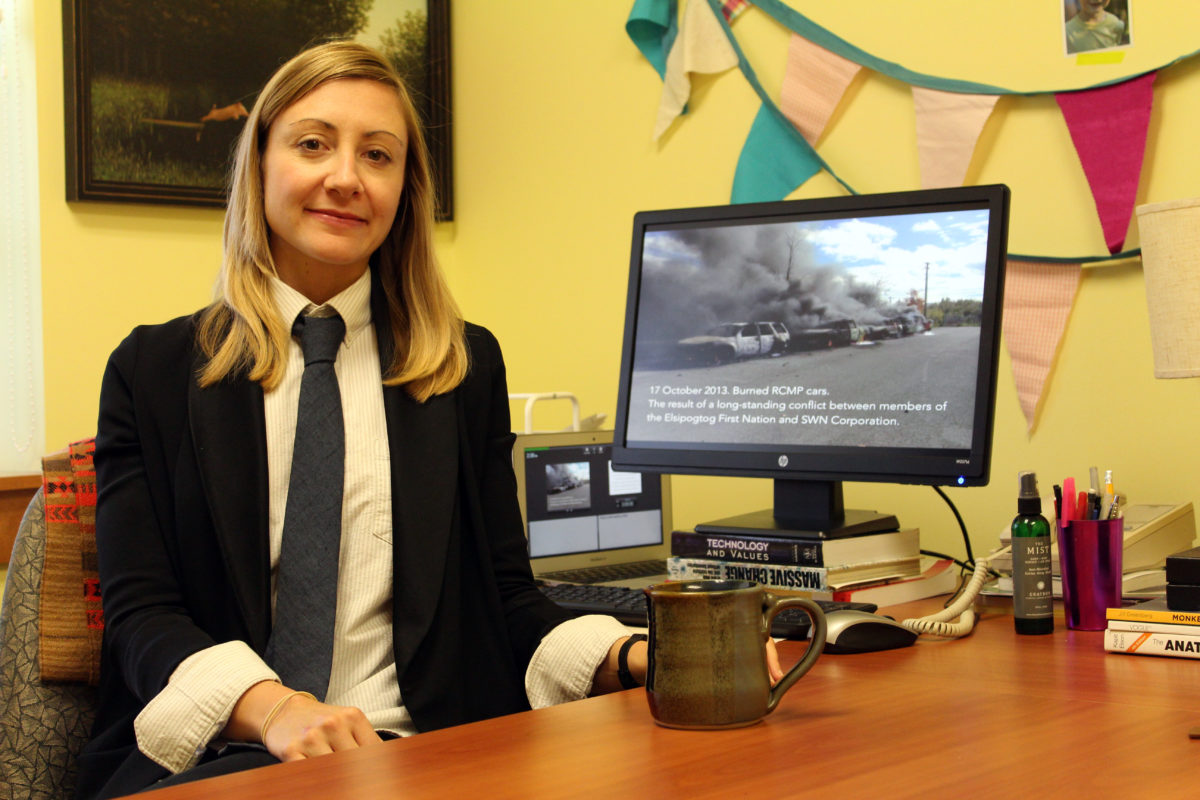Ongoing research has found the common critique that the New Brunswick Energy Institute pays lip-service to the provincial government’s desire to proceed with shale gas fracking doesn’t hold weight. It does offer a look at why the two say the same things anyway.
St. Thomas University professor Kelly Bronson spoke of her experience observing the three NBEI Energy Roundtables held since the institute was created early in 2013 at a casual Qualitative Lunch discussion at STU on Friday. She attended the roundtables to research the discussion around energy.
“How they are limited, in my preliminary analysis, is that the conversation is dominated by technical concerns, at the expense of bringing

in social and cultural concerns,” she said.
For a over a century, Bronson said, governments have informed their decisions on scientific research more than anything else. In the realm of science and technology studies this is often called “scientization”.
UNB earth sciences professor Tom Al is a member of the Institute’s Scientific Advisory Council, which is guided by the membership of the roundtable. He said the government had never guided research, despite the three representatives from the departments of health, energy and environment on the roundtable.
“…Clearly there was some motivation on the government on that side to pursue science related to energy,” Al said of the previous government’s dedication of $1 million per year to the institute.
“They never really stepped in to tell us what to work with. They asked us to figure out what the best research objectives would be.”
Bronson, the acting director of the science, technology and society department at STU, said the conversation naturally focused on shale gas most of the time.
“They share a set of values, and that’s my sense,” she said.
“Even the example of the ideas at play during these roundtable meetings of water as a resource is a kind of framing assumption. It’s the starting point for the conversation. Whereas, the First Nations representative at the table might not frame it that way in the first place.”
She said the conversation was so narrowly focused on the present and on scientific research that even technologies coming into vogue were largely ignored.
At the second several-hour-long roundtable last winter, a presentation by NB Power representatives on the future of electric energy through renewable energy sources and smart-grid technology was given.
“Everyone at the roundtable kind of clapped and there was no conversation about it,” she said.
The 20-member roundtable, featuring representatives from government, business, public health and the resource extraction industry, didn’t speak of renewable or alternative energy sources at the most recent roundtable in March either.
None of the six members on the Scientific Advisory Panel specialize in electricity. All of them specialize in either resource extraction or environmental protection and damage assessment.
Al said the topic on everyone’s mind was fracking, and so that is what was asked of the panel, and that is what their research has centered around.
“Renewables are something we are now starting to work on and it’s evolving. We can’t right away say, ‘We’re going to put $400,000 into (a project).’ It’s a long process but research is underway.”
This story was updated to clarify that Kelly Bronson did not in fact sit at the roundtable as a member, but at a separate media desk as an observer.
